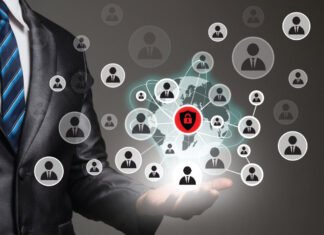Employees and managers unprepared for change will face a rising toll of anxiety and burnout in 2025. Companies must cultivate workforces to be change ready so that both human potential and business outcomes can flourish. meQuilibrium (meQ) has identified four trends that will shape the workforce in 2025:
Organizations Will Prioritize Workforce Change Readiness
“Looking ahead to 2025, we predict a significant rise in anxiety as a result of the accelerating pace of business transformation. Without the right support and skills, this anxiety will erode productivity, dampen employee morale, and weaken overall organizational performance. The stakes are too high to ignore. In 2025, look for organizations to prioritize the development of “change readiness” to help employees become comfortable with new technologies like GenAI, transition into new roles, navigate difficult decisions, and rebound from setbacks.
Leaders will need to shift from simply managing change to proactively preparing their teams for it. This means investing in comprehensive, specialized programs that equip employees to thrive during changes. By empowering employees with the resilience skills to handle stress and uncertainty, organizations can ensure their teams are better prepared for tomorrow. The future of work will belong to those who are not just change-tolerant, but change-ready.”
–Jan Bruce, CEO and co-founder, meQuilibrium
A “Manager Crash” is Looming
“In 2025 we predict a manager ‘crash.’ Like a market crash, we’ll see a significant downturn in manager well-being, performance, and the ability to continue taking the lead as the change champions. If no one is minding the managers, they will be at higher risk of burnout and turnover than the people they manage. Managers are less likely than their teams to feel their manager supports them. At the same time, mentally healthy managers are the crucial force multiplier for organizational success. Employees who don’t feel supported by their manager don’t fare well in times of transformation. They are over four times more likely to leave their jobs and upwards of two times more likely to have poor well-being. Organizations will need to take decisive action, such as prioritizing manager self-care through explicit policies, as the benefits will cascade throughout the organization, improving productivity, innovation, and overall workforce health.”
–Alanna Fincke, NBC-HWC, SVP, Content and Head of Learning, meQuilibrium
Remote Work Well-being Advantages Will Erode
“Based on current data trends, we predict that 2025 will mark the near-complete erosion of remote work’s historical well-being advantages, leading to what we term a ‘Convergence of Strain’ across all work locations. This shift is already visible in the data, with traditional gaps in well-being metrics between remote and on-site workers narrowing significantly through 2024. By 2025, we expect to see equivalent levels of burnout, stress, and psychosocial risk regardless of work setting.
The deterioration of remote work well-being advantages will likely stem from increasing digital presenteeism, boundary erosion between work and home life, and mounting virtual communication fatigue. On-site workers will continue developing adaptive coping strategies and benefiting from more flexible workplace policies, further closing the gap. Work location will cease to be a meaningful predictor of employee well-being outcomes. Organizations will need to shift their focus from location-specific interventions to addressing universal challenges that affect all workers, regardless of where they work.”
–Brad Smith, PhD, Chief Science Officer, meQuilibrium
The Gen Z Paradox: Zoomers See Change as Normal, Yet They Aren’t Good at It
“Gen Z makes up 18% of the current workforce and is predicted to be 30% by 2030. Gen Z, (Zoomers) are the first generation born into a digital world of rapid and constant transformational change. While older generations have had to adapt to change, for Zoomers change is their natural environment. They are more adept at detecting silver linings in change and opportunity in transformation. But Zoomers have one thing in common with all other generations; their brains are averse to change.
Therein lies the paradox; while Zoomers may see change as normal, that doesn’t make them good at it. Since life skills are something we develop across the lifespan, and they are still in the workplace on-ramp, they still have a lot to learn. Research shows that almost two-thirds of Zoomers are experiencing significant mental health issues while older generations average half that rate. Fortunately, Zoomers will choose employers who offer mental health days, wellness programs, work-life balance, reasonable work hours, and show social responsibility. We need Zoomers to help us ‘normalize’ change and they need us to accommodate their workplace wants and needs. We ignore the paradox at our peril.”
Explore HRTech News for the latest Tech Trends in Human Resources Technology.












